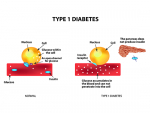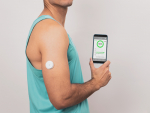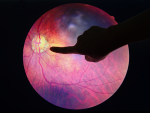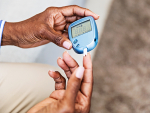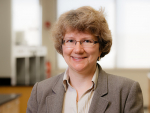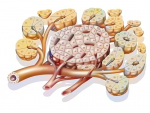Displaying items by tag: comprehensive diabetes center
UAB researchers say the presented data indicates that a younger age and higher HbA1c at baseline predict early treatment failure and point to the need for more aggressive initial treatment in these patients.
Tagged under
Tagged under
Lund is the fifth Distinguished Fellow from UAB named since 2019, a sign of the strength of immunology research at UAB.
Vaccination of neonatal mice with group A Streptococcus promotes clonal expansion of B cells that produce antibody against GlcNAc. The association of reduced Type 1 diabetes risk after group A Streptococcus infection is dependent on these GlcNAc-specific B cells.
Tagged under
These results add an additional, mechanistic aspect to further explain how the decades-old blood pressure medication verapamil can preserve beta cell function in Type 1 diabetes patients by affecting the hormone insulin-like growth factor 1.
Tagged under
Three UAB studies look at obesity in-utero and how it affects offspring as part of four-center study
Tagged under
Continuous glucose monitors can transform one’s diabetes treatment and care. A UAB diabetes expert explains what patients should know about the devices when evaluating their diabetes care plans.
Tagged under
The clinical trial focused on very young children, who have a more rapid loss of the pancreatic beta cells than do adolescents. The trial was constrained to a low-dose level, but showed safety and tolerability and reduced serum glucagon, a secondary outcome.
Tagged under
Many with diabetes might get overwhelmed or experience burnout. Follow these five self-care diabetes tips from the UAB Comprehensive Diabetes Center to show yourself some love this February.
Tagged under
Using data from the REGARDS cohort, UAB researchers found the impact of certain stroke risk factors vary with age.
Tagged under
Diabetic retinopathy is the leading cause of blindness in American adults. The source of this damage may lie in the belly — mainly a leaky small intestine. A novel treatment can possibly prevent or reverse this damage.
Tagged under
Watching the portion and carb content of food and drinks can help prevent blood sugar spikes this New Year’s Eve.
Tagged under
This study will enroll patients to evaluate which combination of three proposed interventions — including health coaching, food delivery and remote patient monitoring — will help patients manage diabetes and also be sustainable for health systems to implement.
Tagged under
Donnie Bush, who has Type 1 diabetes, and his wife DeDee have endowed a legacy gift to the UAB Comprehensive Diabetes Center to promote cutting-edge diabetes research.
Eugenia Kharlampieva’s commitment to high-caliber diabetes and cancer research using polymer chemistry has earned her recognition as the 2022 Ireland Prize recipient.
Tagged under
Three UAB employees share their diabetes journey and provide healthy tips in honor of Diabetes Awareness Month.
Tagged under
At their annual Innovation Awards, UAB’s Bill L. Harbert Institute for Innovation and Entrepreneurship celebrated innovators from all corners of campus for their accomplishments, inventions and ingenuity.
Tagged under
- release
- college of arts and sciences
- school of engineering
- school of medicine
- department of medicine
- uab medicine
- collat school of business
- barefield entrepreneurship program
- department of physics
- department of pediatrics
- department of dermatology
- division of pulmonary allergy and critical care medicine
- comprehensive diabetes center
- department of materials science and engineering
- department of computer science
- department of ophthalmology and visual sciences
- department of mechanical engineering
- department of microbiology
- division of gerontology geriatrics and palliative care
- harbert institute for innovation and entrepreneurship
Given the rising rates of obesity and diabetes, semaglutide could be used effectively to reduce the burden of these chronic diseases.
Tagged under
Tagged under



